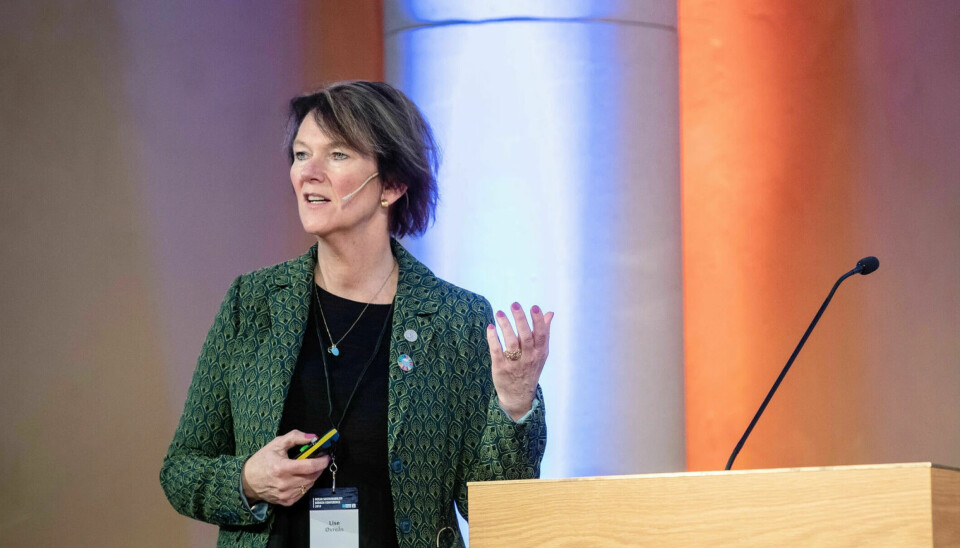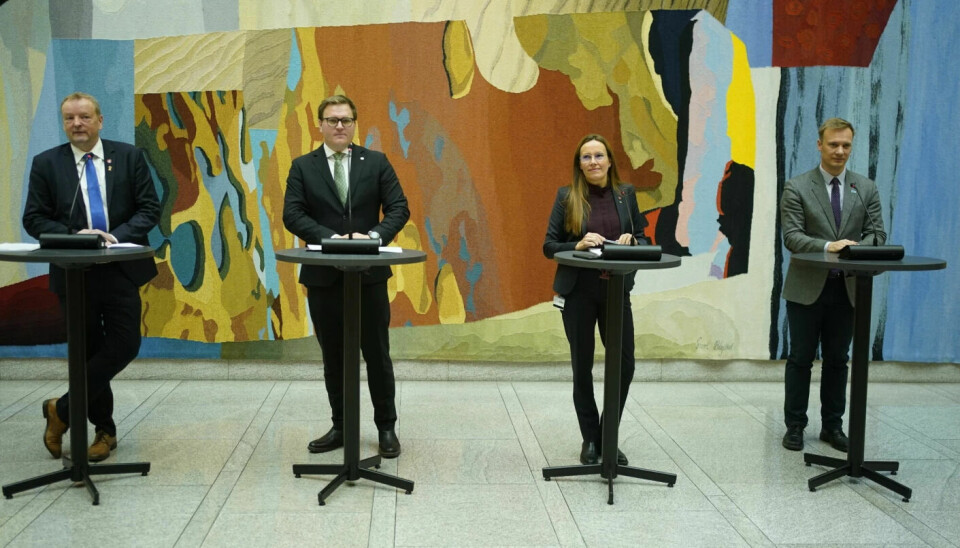
Political majority for seabed mining in Norway:
“I am deeply concerned,” marine researcher says
Norway could become one of the first countries in the world to open up for this.
The Conservative Party (H) and the Progress Party (Frp) have, after several weeks of negotiations, agreed with the government on a phased opening for seabed mining. This means that there is now a majority in the Norwegian Parliament (Storting) for this.
The government's plans for seabed mining have been dependent on support from the right-wing. The government's coalition partner, the Socialist Left Party (SV), is a strong opponent of the plans.
Seabed mining is highly controversial. In its recent directive on critical raw materials, the EU has stated that it will not support such projects until all environmental impacts have been fully mapped, according to Norwegian News Agency NTB.

Not what the research communities have recommended
“I am deeply concerned about the consequences of the government's decision along with the Conservative Party and the Progress Party, which is not in line with what the research communities have recommended,” Lise Øvreås tells sciencenorway.no.
She researches biological diversity in the deep sea and is president of the Norwegian Academy of Science and Letters, an organisation aimed at promoting science.
Most viewed
“I think it’s embarrassing to be a Norwegian researcher in international forums at the moment,” Øvreås told forskning.no in a previous article (in Norwegian).
She is doubtful about the new changes proposed by the coalition parties.
“Based on what I know so far, I don’t believe that the new restrictions alter the situation. It seems that these control mechanisms are mainly politically driven and that the research communities are largely disconnected. This is unfortunate. Why can't they let the independent and professional researchers work to develop the necessary knowledge base in this field?” she asks.
Øvreås says that her biggest concern is that opening up the area for mining will cause irreparable damage to ecosystems.
Conservative Party: “We set clearer environmental demands”
Norway has large deposits of various minerals on the seabed. Many of these minerals are important, for example, in the construction of wind turbines and batteries.
The Conservative Party justifies its support by stating that there will be a great need for minerals in the coming decades to cope with the energy and climate transition, and that seabed minerals are an exciting opportunity for Norway, according to NTB.
At the same time, it has been important for the party to tighten the framework proposed by the government, according to the Conservative Party's spokesperson, Bård Ludvig Thorheim.
“We are now setting clearer requirements for the environment and environmental mapping, and we are introducing a new phase where the first plans for extraction must be returned and approved by the Storting,” he tells NTB.
This means, among other things, that the parties have agreed on a step-by-step opening process where the Storting will approve the first development projects, in the same way as is done for certain extraction projects in the petroleum sector.
“Extraction should only be permitted if it is proven in the future to be sustainable and can be done responsibly, and after the government has presented an updated and comprehensive report on the deep-sea environment,” he says.
This case is scheduled to be discussed in the Storting at the beginning of January 2024.
However, it may take several years before extraction begins (link in Norwegian), according to Steinar Ellefmo. He is a professor at the Department of Geoscience and Petroleum at the Norwegian University of Science and Technology (NTNU).
Very positive
One who is pleased with the news about the opening is Egil Tjåland, a researcher at the Department of Geoscience and Petroleum at NTNU. He is also secretary general of the Norwegian Forum for Marine Minerals, an interest organisation for the extraction of seabed minerals.
“It’s very positive that there is now an opening for mineral extraction from the deep sea,” Tjåland tells sciencenorway.no.
“It’s a vote of confidence for Norway that the opening has taken place through good democratic processes,” he believes.
Sciencenorway.no has previously spoken with him about the types of technologies that are relevant for seabed mining.
Tjåland believes that the decision is based on a thorough opening process over the last few years, where all stakeholders have had the opportunity to express their views.
“The new additions are a result of the consultation process and show that the democratic process is real. It’s also sensible to let the Storting take a controlling role at the beginning of this new industry, in the same way as was done at the start of the oil and gas industry in the North Sea,” he says.
Had hoped more time would be devoted to this issue
Tina Kutti is a researcher at the Institute of Marine Research and one of those at the institute who has contributed to the proposal of opening for mining along the way.
Kutti says that the news was somewhat expected.
“At the same time, I was a bit disappointed,” she says. “I was hoping that our concerns about the inadequate knowledge base would be considered seriously, and that more time would be devoted to this issue, in line with our recommendation.”
Kutti says that it looks like some of what has come up in the hearings has been included in the new proposal. But the details are still not known.
“It’s still difficult to judge how serious the environmental requirements will be. But I think it's good that it has to go through the Storting. That’s a big improvement compared to the first proposal,” she says.
Kutti states that the Institute of Marine Research has contributed numerous suggestions regarding the gathering of knowledge.
"We've felt the absence of a defined approach by the government on the process of knowledge collection, which is something we haven’t seen yet,” she says.
She hopes to see more of the elements they have pointed out in the new proposal.
Objections from experts
According to the coalition parties, an updated knowledge base about the deep-sea environment will now be created. When the government sent its impact assessment for the deep sea out for consultation in October last year, several experts pointed out that we know too little about the environmental consequences.
- The Institute of Marine Research wrote that there is a documented "serious lack of knowledge about natural conditions and bottom currents in the study area".
- The Centre for Deep Sea Research at the University of Bergen wrote that the factual basis is good enough to start an exploration phase, but then a clear regulatory framework that protects the environment must be created. Much more knowledge is needed before it can be permitted to extract the minerals, they believe.
- The Norwegian Environment Agency was highly critical and wrote that the environmental impact assessment does not provide a basis for opening up for mineral extraction at sea. They believe, among other things, that it is necessary to find out which areas should be protected first.
You can read more about the environmental impacts that researchers fear at sciencenorway.no.
———
Translated by Alette Bjordal Gjellesvik
Read the Norwegian version of this article on forskning.no






































